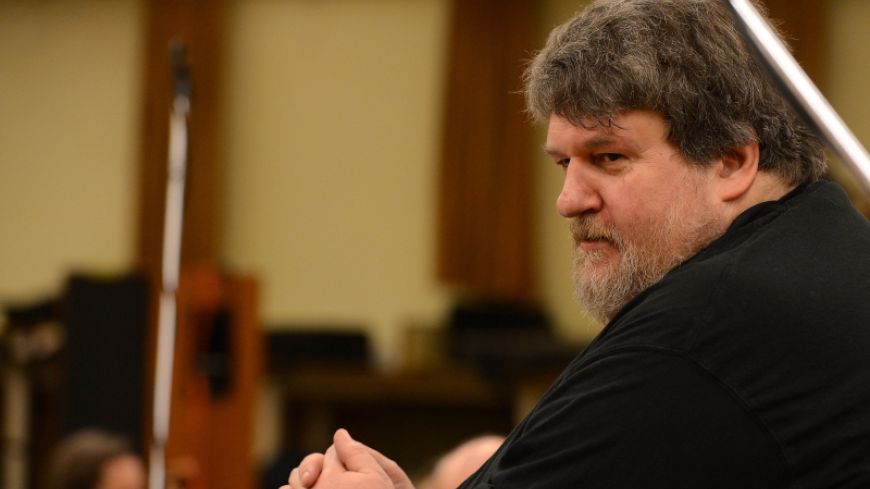
Outgoing Festival Director Sir Jonathan Mills kicked off this year’s programme with a lucid account of its highlights and the reasoning behind the selection of productions on the centenary of the First World War.
All three concert items were composed and performed shortly before the war started in 1914. Widely different in style and genre, they made up a thought provoking, though not entirely enjoyable evening.
The five Schoenberg pieces, from his expressionist period, did not make easy listening but grabbed intense attention – apart from the lady seated in front of me who concentrated on her smart phone photos. “My first feeling was that it was all just a cacophonic jumble of notes,” said one Festival regular, “but there was much more than that.”
The other work in the first half was more compelling. Prometheus was written by Scriabin after he became involved in Theosophy. Like all his later works it was permeated by mysticism, including his “mystic” chord of 4ths, and was intended as preparation for the supreme mystic occasion. This performance used all the resources of the orchestra – sensitively but firmly guided by Knussen – plus an organ, piano and a wordless Festival Chorus. The brief piano interjections by Kirill Gerstein were faultless and precisely timed. In Greek mythology, Prometheus created mankind by stealing fire from heaven and bringing it to earth. Fire was notably lacking in this Scriabin opus.
Concertgoers who left early – there were a number of empty seats after the interval – missed the best of the evening. Those in the audience who were apprehensive when Knussen made his ponderous heavy way to sit at the conductor’s rostrum were confounded by his deft touch and incisive interpretation.
Debussy’s Martrydom of Saint Sebastian was conceived as incidental music for a play by the Italian poet Gabriele d’Annunzio. Controversial from the start, with its admixture of Christian belief and mourning for the pagan Adonis, the Archbishop of Paris banned Catholics from attending the premiere on pain of excommunication. The five-hour long play had a well-attended premiere but did not survive. Not surprising really, considering its extensive dance sections, cast of 150 and 500 costumes.
The EIF performance was of the revised orchestral version first heard in London under Sir Henry Wood in 1915. Seldom performed in the past 100 years, Saint Sebastian may not be Debussy’s best work and may have suffered through d’Annunzio’s later fervent support for Mussolini and Fascism.
A top-form RSNO proved more-than-capable playing of the mystical and impressionic music but the honours of the evening go to the Edinburgh Festival Chorus. Singing en masse or in sections as a chorus of women, virgins, Syrians, martyrs angels and Apostles they were faultless and fully deserved the resounding applause that erupted at the end. Solo singers Clare McCaldin and Polly May were excellent. Soprano Claire Booth, with a much bigger role, was somewhat off-peak at times.
Concert: 8th August 2014, 7.30 pm

